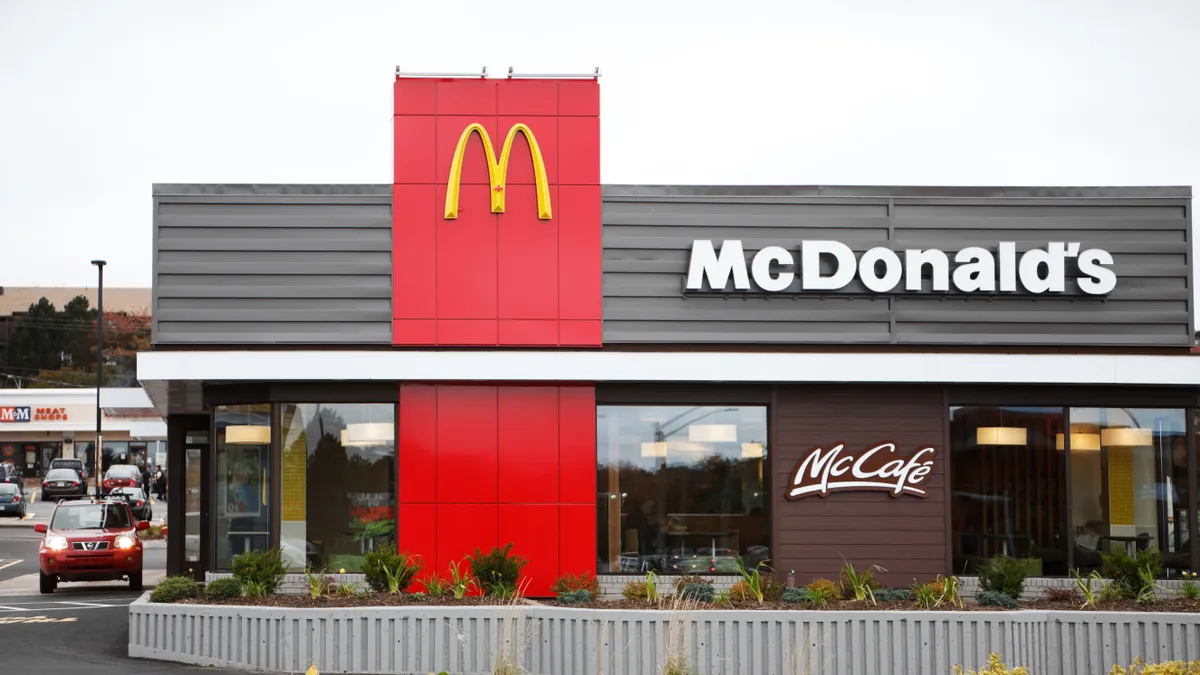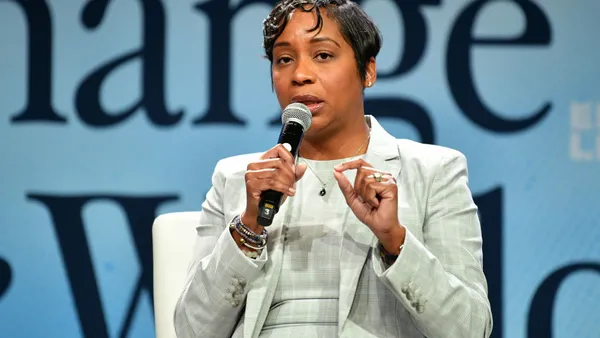Dive Brief:
- AMTCR, Inc., a franchise owner and operator of McDonald’s restaurants in Arizona, California and Nevada, agreed to pay $1,997,500 to settle allegations by the U.S. Equal Employment Opportunity Commission that it allowed teenage workers to be sexually harassed and intimidated on a repeated basis, the agency announced Jan. 6 (EEOC v. AMTCR, Inc., No. 21-01808 (D. Nev., Sept. 29, 2021)).
- Since at least 2017, supervisors, managers and coworkers at AMTCR’s McDonald’s restaurants allegedly subjected teen employees to pervasive harassment such as unwanted sexual touching, offensive comments and sexual advances, according to court documents. Despite multiple reports of misconduct, management allowed the harassment to continue, forcing many workers to quit, the EEOC alleged. In one example, a 54-year-old cook allegedly sexually harassed a 17-year-old worker almost daily, the lawsuit alleged. The employee complained to supervisors but his manager said she didn’t believe him, according to the complaint. In 2021, the EEOC sued AMTCR for creating a sexually hostile work environment and engaging in constructive discharge, in violation of Title VII of the Civil Rights Act of 1964.
- In addition to the $1.9 million in monetary relief, AMTCR will establish a system for tracking discrimination, harassment and retaliation complaints, hold offenders accountable and take appropriate discipline, according to the EEOC. “We are encouraged by the robust measures AMTCR is agreeing to implement company-wide to encourage workers to raise complaints; to swiftly and effective address complaints; and to include bystander training for all employees to ensure a discrimination-free work environment,” Anna Park, an EEOC regional attorney, said in a media release. AMTCR declined to provide a comment.
Dive Insight:
The EEOC has targeted allegations of teen workers in the fast-food industry being sexually harassed on the job in recent months. For example, in March 2022, the EEOC sued Chipotle for allegedly ignoring reports that a manager was soliciting a 16-year-old worker for sex, leaving her vulnerable to his sexual assault one night during closing.
Also in March 2022, Long John Silver’s agreed to pay $200,000 to settle EEOC allegations that two managers offensively touched, made lewd comments to and sexually propositioned employees, including a 17-year-old who was allegedly forced to quit after she complained. And in 2020, a North Carolina corporation operating seven McDonald’s restaurants agreed to pay $12,500 to settle EEOC allegations that a “people manager” subjected a 16-year-old to sexual harassment.
The EEOC has a keen interest in preventing and remedying sexual harassment in the workplace, particularly in protecting teen workers, Chair Charlotte A. Burrows noted in the latest press release. To this end, employers should be “mindful of the demographics of their workforce, including whether employees may be more vulnerable to being targeted because of their age,” Las Vegas office director Michael Mendoza said. That involves taking “extra care that supervisors are trained to understand their obligations and that employees are encouraged to report discrimination,” Park added.
Prevention is the best tool for eliminating sexual harassment, according to an EEOC fact sheet. In addition to training staff, employers should clearly communicate to employees that sexual harassment will not be tolerated, establish an effective complaint or grievance process and take immediate and appropriate actions when an employee complains, the fact sheet advises.
It also helps to foster a culture of trust, where employees show they are willing to take complaints seriously, HR pros previously told HR Dive. When employers react calmly and consistently to allegations of misconduct, workers are more likely to report bad behavior, which allows organizations to prevent further misconduct.















